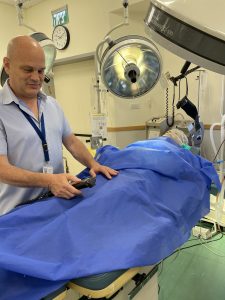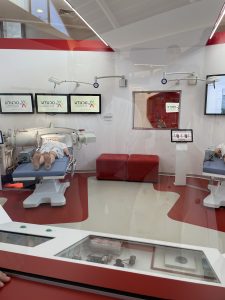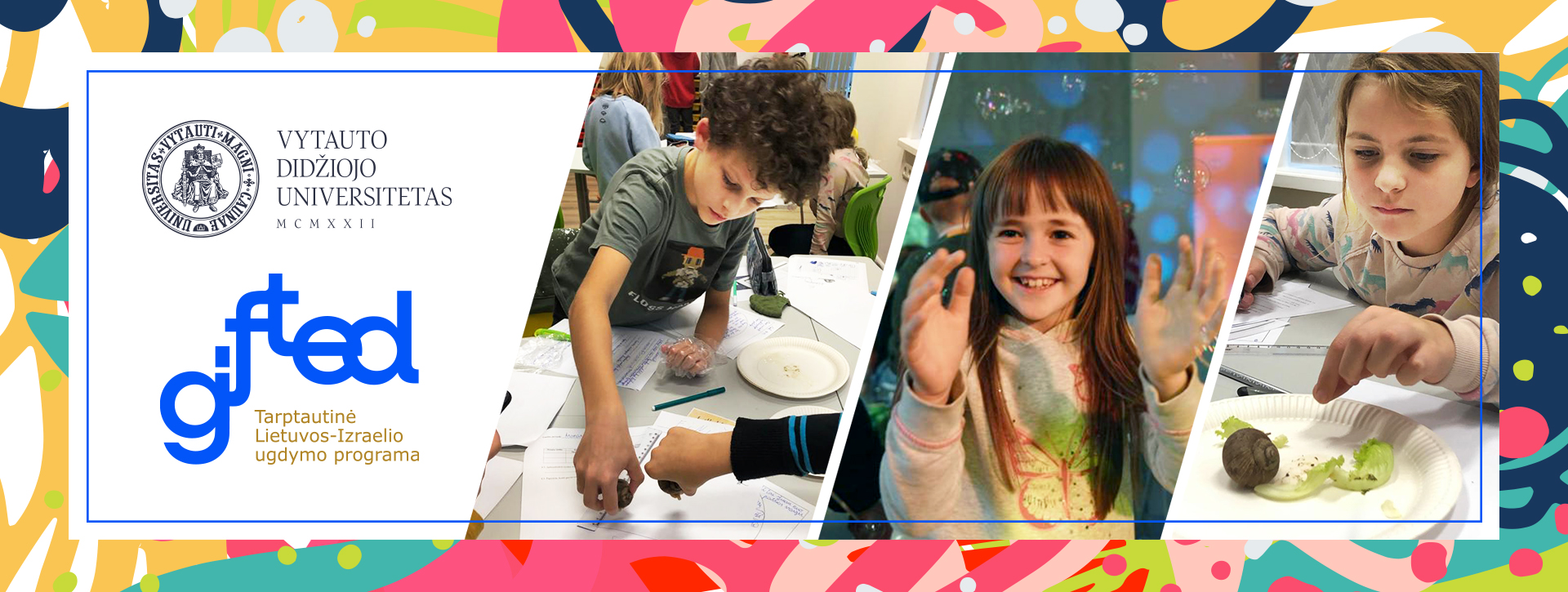Kaunas becomes a leader in the education of gifted children
Vytautas Magnus University (VMU) Rector Prof. Dr. Juozas Augutis, Chancellor of the Academy of Education Prof. Dr. Lina Kaminskienė and Program Coordinator of the Gifted Children Education Center Dileta Tindžiulienė returned from a visit to the University of Haifa in Israel. The contacts and cooperation ideas established in this country, which has accumulated considerable experience in the education of gifted children, are bearing their first fruits.
During the visit, the VMU delegation met with the Rector of the University of Haifa Prof. Dr. Gur Alroey, Dean of the Faculty of Education Prof. Dr. Roza Leikin and team members. At the meeting, they agreed on a double diploma in the education of gifted and talented children, issues of teacher training, and discussed other cooperation opportunities.
During their stay in Israel, they visited the Haifa Innovation Center for Children and the Hadera Gifted Children Education Center Technoda. The cooperation agreement reached with the latter is particularly pleasing to D. Tindžiulienė: “At the Hadera Center for the Education of Gifted Children, we saw not only a variety of medical simulation equipment for children, but also a planetarium exclusively for the center’s students. Here, children learn human anatomy, get acquainted with the secrets of medicine, and learn many other interesting things. I was especially surprised and impressed by the teachers working in this center, who teach not only a variety of common disciplines, but also the secrets of creativity and thinking.”
It is hoped that creativity and thinking training will also be organized for Lithuanian teachers. Starting next fall, the “Gifted” center will offer a number of innovations to Lithuanian teachers. According to the center’s director, it is amazing how children in Israel are freed from the boundaries that adults themselves set for them. However, all this is possible only if gifted children are worked with by specialists who love their work unconditionally. “They can’t imagine their work in a regular school,” the interviewee marveled. “In a center for the development of gifted children, a student can teach a lesson about the stars, but if a child has a question about the Moon at that moment, he will interrupt the lesson to accompany the children to the planetarium, answer the questions, and return to the lesson about the stars.” Teaching children to ask, search and discover, take responsibility, and argue is, according to D. Tindžiulienė, the most important thing. After all, no employer is interested in what grade you once received in mathematics or what your annual average was. Employers today assess the abilities of future employees to think, take responsibility, cooperate, and find creative solutions to problems.
The meeting with the vice-mayors of the city of Rishon Lezion, with whom they have been cooperating for three years, gave the guests from Lithuania a lot of positive emotions and thoughts. The Ron Vardi Center for Gifted Children is located in this city and has been a reliable partner of the Lithuanian Gifted since the very beginning. Currently, the center’s teachers, together with colleagues from Lithuania, Latvia and Bulgaria, are developing programs for gifted children aged 8-12 within the winning Erasmus project Gate2Gifted.
Another interesting observation from the visit is that in educating gifted children in Israel, the role of seniors is very important. Former professionals from various fields volunteer at centers for gifted children, tell their grandchildren and their friends about their professions, and thus help young people choose their future life path.









